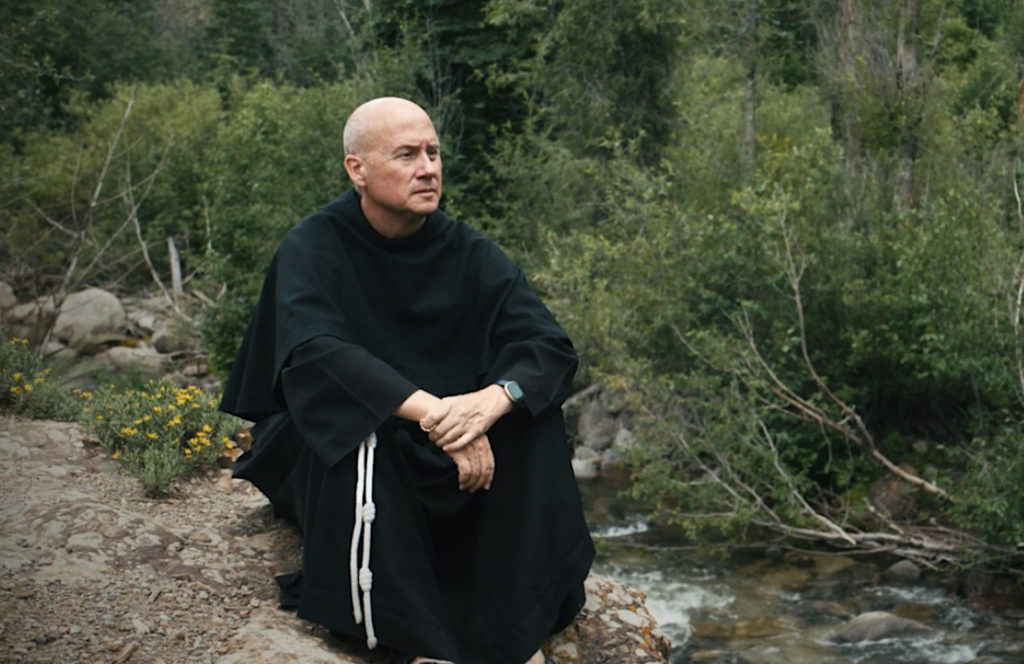Writing in Catholic media means that I get a lot of unsolicited emails and Facebook notifications about Catholic media. Most of them are the variety of podcasts and opinion videos I have written enough about already. But then I received an invitation to sign up for a free Catholic streaming service called Wild Goose TV.
They had me first at “free,” and when I watched the six-part episode “My Father’s Father,” they just plain had me. The host of the program is Father Dave Pivonka, a Franciscan friar of the Third Order Regular of St. Francis (TOR). Pivonka is also the president of the University of Steubenville.
He seems to be the driving force not only as the host of “My Father’s Father” but of Wild Goose TV. How fitting, as this is a streaming service that embodies what the founder of his order was all about. He is “rebuilding a Church” in need of repair. St. Francis used brick, stones, and mortar while Pivonka uses the tools at his disposal: 21st century technology capable of reaching around the globe.
But as “global” as his reach may be, the intimacy of the series and its profound focus on the Fatherhood of God (sometimes an overlooked element of the Trinity), is right out of St. Francis of Assisi’s playbook. When I first began watching the series, I immediately thought this content should be mandatory viewing for every confirmation class across the Archdiocese of Los Angeles. But as I’ve gotten deeper, I am even more convinced this content would benefit any marriage preparation class, anyone discerning the priesthood, or any person looking for a deeper connection to his or her father, both earthly and heavenly.
Each episode speaks to any Catholic man, woman, and child, in whatever stage of life they find themselves. Pivonka interweaves his personal story about his dad and how important he was to his formation as a Catholic and as a priest.
His story is certainly unique to him, but it has elements that apply to so many of us. His father was not perfect, but he was a man of strong faith and committed to the love of his wife and children. Pivonka’s dad is an inspiration to any father who either wants to be better at his job or repair some of the damage he may have caused.
Every segment has something that will cause the viewer to reflect on their own life’s journey with their dad. Pivonka interviews a theologian on the importance of earthly fathers, and when the interview subject mentioned how critical it is that fathers let their children know how thoroughly wanted they were from the moment of their conception, it took me right back to my own childhood. When strangers would be aghast at the number of kids my parents had and wonder aloud why on earth they would have so many, my mom and dad had a pat response that they always wanted 10 kids. When you are No. 10, that kind of reassurance hits the mark.
The series is not all roses and violins. There are problematic dads and sandpaper-rough relationships examined between sons, daughters, and fathers. But it is through the incompleteness of these dads that the fullness of God the Father’s love becomes so powerfully present.
The series is shot on location in places that were special to Pivonka and his father. The Grand Canyon and other national park locations provide the backdrop for memories of his dad about simple things like fishing, and not-so-simple things about God’s wondrous creation and a father’s love for a son. It was yet another personal touchpoint for me, as I’m sure it will be for many others.
The series is not all Pivanko’s reminisces about life with his dad. There are other people we meet along the way with more complex father/son and father/daughter relationships. But all these arcs lead to the same conclusion — how even the imperfections of an earthly father can turn someone toward the love and fidelity of a wondrous heavenly Father.
In a digital world full of vitriol and white noise, Wild Goose TV is just what the doctor, and in this case, even the doctors of the Church, ordered.

